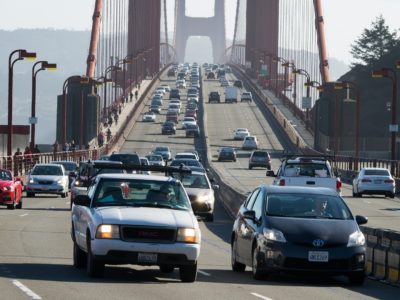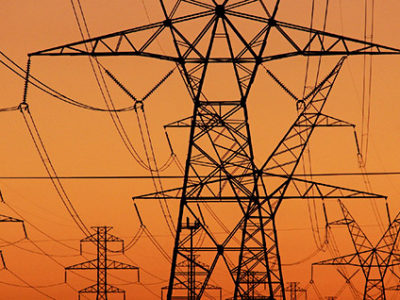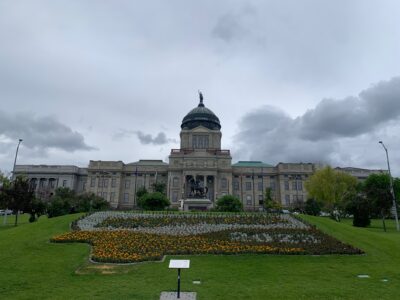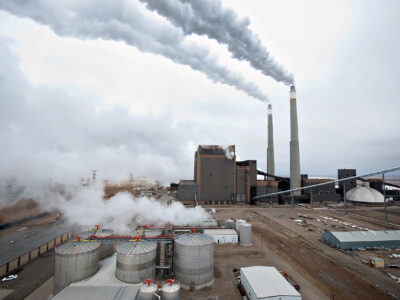Climate Change & the 1st GOP Debate
Mostly, they didn't want to talk about the issue. They certainly didn't want to talk about solutions.
Somewhat to my surprise, there was a question at the first GOP debate about climate change. The candidates' pre-debates views, which the NY Times helpfully collected, provided insight into possible directions for GOP energy policy. It's even possible that reality has started to make a dent into the party;'s reflexive climate denial. The climate question was prompted by a statement by Alexander Diaz of the Young America’s Foundation, a conservative youth organizati...
CONTINUE READINGCars, Smog, and EPA
Over the past fifty years, EPA has overseen incredible reductions in auto pollution.
This is part of an occasional series of posts about the evolution of pollution standards. Today's subject is pollution control for new vehicles, which have been known to cause smog since the 1960s. The history of these pollution standards is quite distinctive. At the high temperatures in internal combustion engines, some of the nitrogen in the air actually burns, resulting in the formation NO or NO2, which are collectively called NOx. NOx plays a role in forming groun...
CONTINUE READINGGood News! Policymakers ARE Embracing E-Bikes
You wouldn’t know it from reading the New York Times, but cities and states are innovating to get people out of cars and on e-bikes. Is California falling behind?
After reading the recent (and very dumb) New York Times expose by Matt Richtel on e-bikes, you’d be forgiven for mistaking electric-assist bicycles for the next big threat to human health. But 3 other news stories about the benefits, and growing pains, of e-bikes show there’s real interest in them as a climate solution. Rather than just critique the NYT’s editorial choices, I want to highlight some of what we’re learning from more thoughtful reporting on e-bi...
CONTINUE READINGState Air Regulations Can Go Above and Beyond National Standards
State and local regulators can and should work to reduce particulate matter, ozone, and NOx emissions even when national standards are met.
States and local air quality regulators have the legal authority to set particulate matter (PM), ozone, and nitrogen oxides (NOx) emissions standards and adopt regulations for these pollutants when they are already in attainment of the national ambient air quality standards (NAAQS) set by the U.S. Environmental Protection Agency (EPA) under the federal Clean Air Act (CAA). PM, ozone, and NOx are harmful pollutants that cause severe health effects that can range from re...
CONTINUE READINGGOP Contenders and the Climate Issue
Flat-out denialism seems to be fading in the face of reality.
The first Republican presidential debate will be on Wednesday. I doubt moderators will ask about climate change. It turns out, however, that there’s some spread of views among the candidates. Apart from Trump, each of them is jockeying to pick up enough GOP support to be a serious contender. Their views, which the NY Times has helpfully collected, provide insight into possible directions for GOP energy policy. We’re all familiar with Trump’s views, so I’ll focu...
CONTINUE READINGAccelerating Transmission Approval
A proposed program will help streamline transmission permits.
A week ago, the Biden Administration proposed a new program called CITAP to accelerate permitting from transmission lines. If properly implemented, the program will do much more for permitting reform than the recent NEPA amendments in the debt ceiling law. The reason? CITAP implements a statute that is much more ambitious in its overhaul of permitting. CITAP is short for the Coordinated Interagency Transmission Authorizations and Permits Program. CITAP is based on s...
CONTINUE READINGA Montana Victory for the Youth Climate Movement
Held v. Montana shows climate science can win in a courtroom. But one decision is just the beginning of a long legal fight.
A state court judge in the ‘Last Best Place’ just gave the youth climate movement a shot in the arm with the first decision of its kind that directly connects specific state actions to global climate change and then to injuries suffered by young people. It’s a decision worth reading, as U.S. courts have not yet engaged in this kind of fact-finding on climate change. Here are some highlights from Held v. Montana. “Defendants’ actions contribute to climat...
CONTINUE READINGMontana “Youth Citizens” Win Landmark Climate Change Trial
Court rules Montana's state constitutional guarantee of a clean & healthful environment for Montanans prevails over state officials' fossil fuel-centric policies
A Montana state district court has issued its long-awaited decision in a major climate change case brought by Montana children against state officials. In Held v. State of Montana, a Montana trial court ruled that the state Constitution's guarantee of a healthy and clean environment prevails over Montana's longstanding fossil-fuel-based state energy policies. The "youth citizen" plaintiffs in Held successfully argued that implementation of Montana's "State Energ...
CONTINUE READINGThe Utility Response to EPA’s Climate Rules
The power industry apparently shares some progressive doubts about CCS and hydrogen
There are three big takeaways from the utility industry’s comments on EPA’s proposed new climate rules. First, the industry seems to share progressive concerns about whether we can count on hydrogen and CCS (carbon capture and sequestration). Second, the industry doesn't invoke the major question doctrine, making it clear that it does not view such technology mandates as out of bounds for EPA in the future. Third, most of its comments are focused on timing issues. Th...
CONTINUE READINGSpewing Out Mercury
These three power plants cause a big share of America’s mercury pollution.
In Ireland, poor people used to burn peat from fuel. Barely a step ahead of that, some American power plants burn semi-fossilized peat (lignite) to run their generators. It turns out that those power plants produce about a third of all the toxic mercury emissions of the entire industry. Even more remarkably, about half of those mercury emissions come from just three power plants spewing toxic smoke. Here the tawdry trio of polluters. The first of the toxic trio is the...
CONTINUE READING











